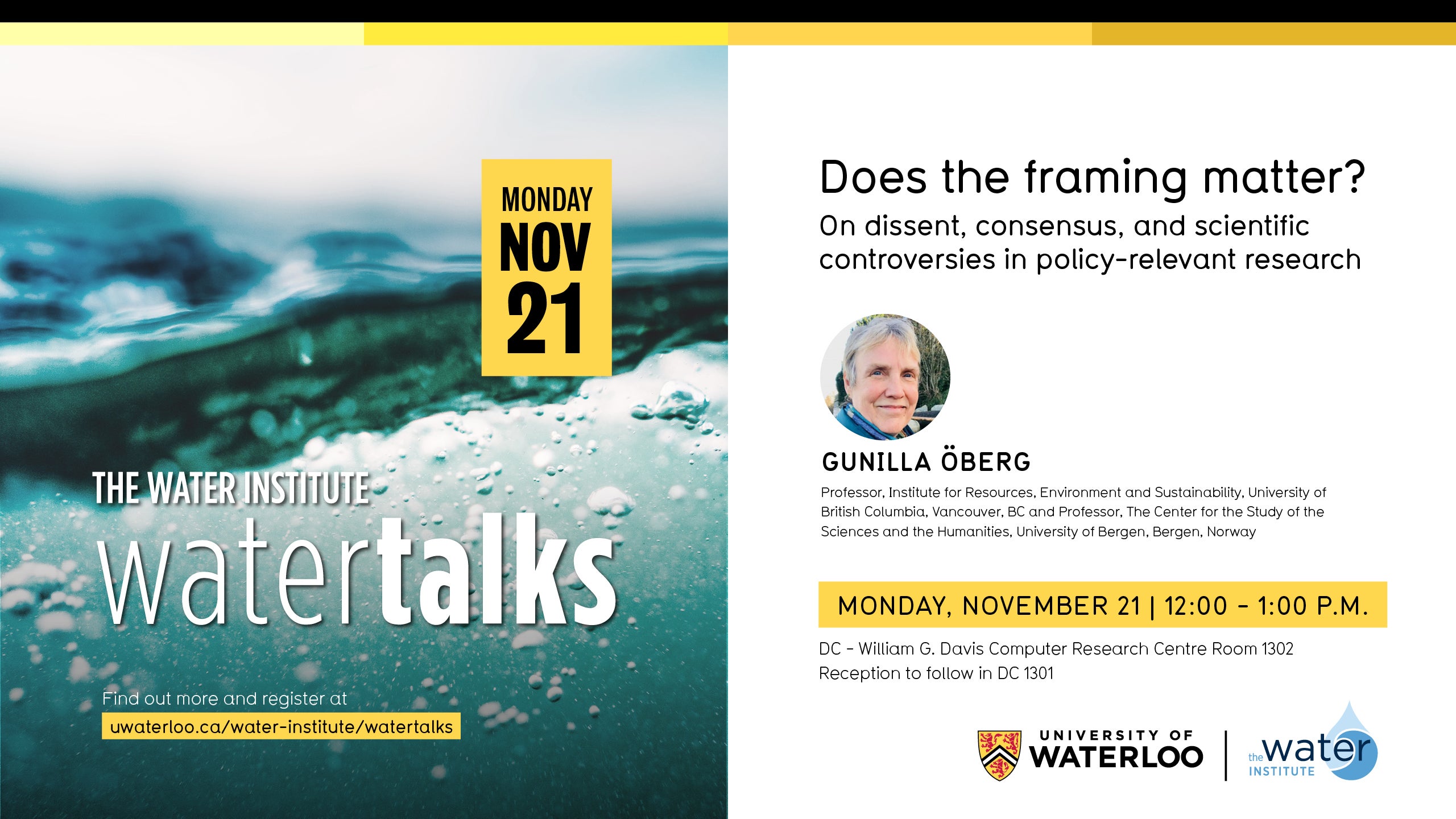
As part of the Water Institute's WaterTalks lecture series, Gunilla Öberg, Professor, Institute for Resources, Environment and Sustainability, University of British Columbia, Vancouver, BC and Professor, The Center for the Study of the Sciences and the Humanities, University of Bergen, Bergen, Norway will present: Does the framing matter? On dissent, consensus, and scientific controversies in policy-relevant research.
This event will be offered in person on the University of Waterloo campus in DC 1302 from 12:00 - 1:00 p.m. Reception to follow in DC 1301 (The Fishbowl) from 1:00 - 2:00 p.m.
A large number of areas in society rely on expert knowledge. There is a growing recognition that many of our present-day systems rely on a too narrow definition of relevant and valuable knowledge and expertise. These insights have led to increasing calls for interdisciplinary, trans-academic and cross-cultural competency, which has proven more challenging than anticipated. Drawing on 30-years’ experience of leading and participating in sustainability research in areas of contemporary societal concern, Dr. Öberg will examine common stumbling blocks and ways forward, including the ways in which disciplinary and cultural arrogance hinder the development of common ground and respect for other ways of knowing. She will discuss how a systematic fostering of humility and reflection can be used as a remedy, for example, by scaffolding increased awareness of how differences in thought styles, writing styles, and oral expression impact individual, disciplinary and societal perceptions of quality, reliability and relevance.
Dr. Gunilla Öberg, professor at the Institute for Resources, Environment and Sustainability (IRES) at UBC, Vancouver, Canada is inspired by her deep knowledge in chlorine biogeochemistry and her experience as a leader of complex interdisciplinary sustainability projects. She has over 30 years’ experience of leading complex interdisciplinary projects. Her present research deals with the notion of expertise and expert knowledge in complex areas where science is uncertain and disputed, and the silent exclusion of knowledge that clashes with dominant science, such as Indigenous knowledge. At present, her projects deal with chemicals of concern and microplastics. Questions in focus are: What kind of knowledge is needed, used and trusted? How does the knowledge used impact perceived solutions? How might we help decision-makers and the public ‘unpack’ assumptions, values and preferences that are embedded in such knowledge? What might a more equitable chemicals management system look like?